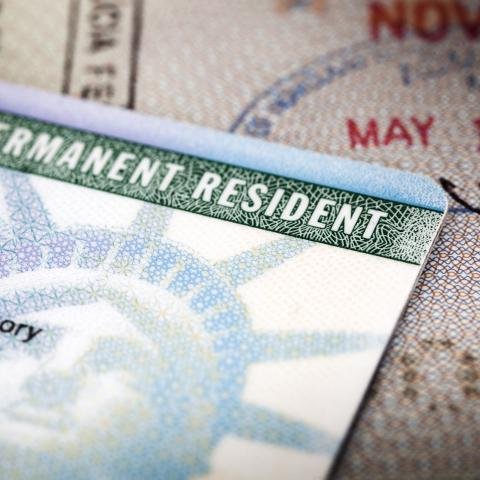
President Donald Trump’s lawsuit against the Pulitzer Prize Board is forcing into the public eye uncomfortable revelations about how the news industry’s top prize giver handled the unraveling of Russia collusion allegations, exposing conflicts in testimony and an admission that people other than Trump complained about its 2018 awards to The New York Times and The Washington Post for their coverage of the now-discredited scandal.
While the litigation in an Okeechobee County, Florida courthouse makes its way to the Florida Supreme Court, new admissions by the intelligence community have undercut the factual basis underlying some of the stories that won the two newspapers the 2018 Pulitzer Prize in National Reporting.
One of those stories was a December 2017 report by The Washington Post that accused Trump of ignoring or trying to downplay U.S. intelligence claims that Putin tried to help him win the 2016 election. “Nearly a year into his presidency, Trump continues to reject the evidence that Russia waged an assault on a pillar of American democracy and supported his run for the White House,” the Post’s award-winning story declared.
While there remains widespread consensus inside U.S. spy agencies that Russia hacked Democratic National Committee emails that embarrassed Hillary Clinton, the narrative the news stories spawned — namely, that Russia’s intent was to help Trump win the election — is disputed.
The claim that Putin was specifically trying to help Trump was included in a December 2016 Obama administration intelligence community assessment (ICA), but in fact there were concerns about that claim and the way that review was done inside the intelligence community, according to new evidence made public this month.
CIA’s Russian experts objected to Brennan’s inclusion of Steele Dossier
CIA Director John Ratcliffe revealed last week that the two top career CIA officials for Russia directly objected to former Director John Brennan’s inclusion of the Steele dossier in the Obama-era ICA and that its conclusion that Russia’s intent was to help Trump was not strongly supported by the evidence.
Ratcliffe’s new report directly assailed the Obama-era Russia assessment that anchored the Post’s December 2017 story, concluding it suffered from significant failures of spy tradecraft and other irregularities.
“The procedural anomalies that characterized the ICA’s development had a direct impact on the tradecraft applied to its most contentious finding. With analysts operating under severe time constraints, limited information sharing, and heightened senior-level scrutiny, several aspects of tradecraft rigor were compromised—particularly in supporting the judgment that Putin ‘aspired’ to help Trump win,” the Ratcliffe report concluded.
A spokeswoman for The Washington Post did not immediately respond to Just the News‘ request for comment.
The new admissions by U.S. intelligence last week aren’t the only ones undercutting entries in the Times’ and Post’s award-winning submissions.
Just the News reported in April that newly released FBI interviews with former National Security Agency Director Mike Rogers, a Navy admiral, show that the former spy chief directly refuted a Post article submitted in the Pulitzer-winning package that claimed Trump had “asked intelligence chiefs to push back against the FBI collusion probe” after former FBI Director James Comey “revealed its existence.” Rogers called the article’s assertions “wrong.”
“The interviewing team read to Rogers a quote from a media source that stated ‘President Trump urged [Rogers] to publicly deny the existence of any evidence of collusion during the 2016 election’ and ADM Rogers responded that the media characterization was wrong, and the President had asked about the existence of SIGINT [signals intelligence] evidence only,” the FBI report quoted Rogers as saying.
Former Special Prosecutor John Durham concluded there was never any evidence that Trump colluded with Russia or Putin to hijack the 2016 election, and that the FBI engaged in significant wrongdoing in pursuing the case, including falsifying evidence and misleading the Foreign Intelligence Surveillance Court to get permission to spy on Trump advisers.
Despite Durham’s findings and the newly released FBI and intelligence documents, the Pulitzer Prize Board has stood by the Times’ and Post’s reporting and its decision to honor them as examples of journalistic excellence. In 2022, it issued a statement saying two separate reviews found no problems with the winning articles.
“Both reviews were conducted by individuals with no connection to the institutions whose work was under examination, nor any connection to each other,” the Pulitzer Board stated. “The separate reviews converged in their conclusions: that no passages or headlines, contentions or assertions in any of the winning submissions were discredited by facts that emerged subsequent to the conferral of the prizes. The 2018 Pulitzer Prizes in National Reporting stand.”
Letting the courts sort it out
After sending a letter complaining about the awards, and after the board’s refusal to withdraw the awards, Trump sued over that statement in Florida state court, alleging that it defamed him by portraying the reporting as accurate.
“Defendants, with knowledge of its falsity and/or reckless disregard for the truth, issued the Pulitzer Statement to publish that ‘no passages or headlines, contentions or assertions in any of the winning submissions’ that advanced the Russia Collusion Hoax had since been ‘discredited by facts that emerged subsequent to the conferral of the prizes.’ This statement is factually incorrect and intended to leave the reader with the false impression that the Times and the Post had correctly reported on the Russia Collusion Hoax in 2017,” Trump’s complaint alleged.
Affidavits and depositions conducted as the lawsuit — all a matter of public record — have put the Pulitzer Prize Board in a difficult light. It has had to admit Trump was neither the first nor the only person or organization to complain about the accuracy of the Times and Post reporting.
“The Board began receiving complaints about the 2018 Pulitzer Prizes in National Reporting, including from President Trump, before I became a Co-Chair,” Pulitzer Prize Board Co-Chairman Neil Brown stated in an affidavit filed last year in the case.
Brown’s affidavit did not specify how many complaints beyond Trump’s public complaint the board received, but he acknowledged the complaints prompted a slow-moving effort to conduct the two reviews and to issue the 2022 statement standing by the awards. The exact number of complaints the Board received about the Russia collision reporting remains unclear in the court record.
Marjorie Miller, the current Pulitzer Prize Administrator, did not immediately respond to a request for comment.
One of the former Pulitzer Board co-chairmen, Associated Press standards editor John Daniszewski, said in a deposition obtained by Business Insider that the board had “engaged two outside consultants” to consider “five or six complaints” about the prizes. Daniszewski said some of those complaints were about historical issues, and one was about Trump’s complaint about the Times and Post awards.
“They recommended to the board that no action be taken and that the basis for the complaint was unfounded,” Daniszewski said in his deposition, according to Business Insider.
Separate from his affidavit, Brown disclosed in a response to Trump’s complaint that at least two outside complaints about the 2018 awards to the Post and Times came in before Trump made his complaint. “Defendant admits that, prior to Plaintiff’s complaint, it received two complaints about the 2018 Pulitzer Prize in National Reporting,” Brown’s filing stated.
The court filings also reveal a conflict in some of the facts among the Pulitzer Board members and staff.
Brown, for instance, stated in his affidavit that “I understand that (former co-chairwoman Katherine) Boo and Daniszewski worked with then-Acting Administrator Bud Kliment and later newly-elected Administrator Marjorie Miller to begin drafting a statement that the Board could issue publicly in response to those complaints.”
But in an affidavit filed on the same day, Kliment, now the deputy administrator of the prizes, gave a different account by denying he was involved in drafting or editing the statement. “I did not draft or revise the Board Statement,” he stated flatly.
Such contradictions suggest that the journalists atop the Pulitzer Prizes don’t have their story straight – an important tenet of the news profession.
It’s not the only tenet of journalism being challenged in the case.
Transparency for thee, but not for me
In its description of what constitutes the “highest journalistic principles” honored by its awards, the Pulitzer Board states emphatically that “these include a commitment to honesty with both readers and the subjects of our work” and that “the best journalism is transparent about its sources and methods.”
But in the course of the lawsuit, the Pulitzer Board refused to identify who conducted the two reviews in 2019 and 2022 affirming the awards or to release the actual reports.
“Defendant admits that the independent reviews themselves have not been made public,” the Board states in one of its defense filings. “Defendant admits that the Pulitzer Prize Board afforded the 2019 reviewer(s) confidentiality and that the identity of the reviewer(s) remains undisclosed. […] Defendant admits that the Pulitzer Prize Board afforded the 2021 reviewer(s) confidentiality and that the identity of the reviewer(s) remains undisclosed” one of the board’s filings said.
Judge Robert Pegg rejected the board’s attempt to hide the identity of the reviewers in January, saying in his ruling that the defendants “did not make any actual showing that the discovery sought would cause him or any person annoyance, embarrassment, oppression, or undue burden or expense. The record lacks factual support for good cause.”
After the ruling, the board dropped its challenge to the public disclosure of what it claimed were “internal deliberations.” At least one of the internal reports, authored by former Reuters editor-in-chief Stephen Adler, is essential to Trump’s case. The board referred to Adler’s review — though without identifying him — in the July 2022 statement that dug in its heels over the award given four years earlier to the Times and Post. The statement also said none of the stories had been “discredited.”
The Board also tried to argue — unsuccessfully — in court filings that Florida’s courts had no jurisdiction over the matter. Despite having released the 2022 statement nationally on its website, Kliment said in an affidavit that “To the extent I had any intent whatsoever with respect to the publication of the Board Statement, I did not intend that it be directed specifically at a Florida audience.” Kliment’s affidavit echoed the language used by several of the Pulitzer Prize defendants in Trump’s suit.
A long and winding road
As is often the case with high-profile lawsuits, the volley of legal filings and rulings only represents the opening salvo. The board lost another motion in late June, asking the court to delay consideration of the case until after Trump was no longer president. According to The Hill, a spokesperson for the Pulitzer Board said “allowing this case to proceed facilitates President Trump’s use of state courts as both a sword and a shield — allowing him to seek retribution against anyone he chooses in state court while simultaneously claiming immunity for himself whenever convenient.” That motion was denied.
Responding to the ruling, the president said on social media that “In a major WIN in our powerful lawsuit against the Pulitzer Prize Board regarding the illegal and defamatory “Award” of their once highly respected “Prize,” to fake, malicious stories on the Russia, Russia, Russia Hoax, by the Failing New York Times and the Washington Compost, the Florida Appellate Court viciously rejected the Defendants’ corrupt attempt to halt the case. They won a Pulitzer Prize for totally incorrect reporting about the Russia, Russia, Russia Hoax. Now they admit it was a SCAM, never happened, and their reporting was totally wrong, in fact, the exact opposite of the TRUTH. They’ll have to give back their “Award.”
In addition to monetary damages, Trump’s lawsuit asked for a “judicial declaration that the Pulitzer Statement published by Defendants is defamatory,” and seeks “permanent injunctive relief prohibiting further publication of the Pulitzer Statement.” The case will proceed through discovery, and although more embarrassing facts about the Pulitzer Prize may be made public, there is no telling whether the case will be summarily dismissed or, instead, a jury will have the chance to weigh in on the matter.




